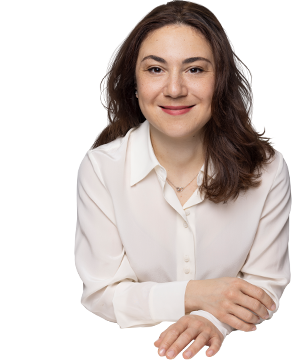IATA launches Travel Pass
It’s important for the global aviation industry to minimize the risk of passengers bringing coronavirus from one country to another. Therefore, IATA is launching a so-called Travel Pass - a technology to help passengers and authorities ensure that travel takes place in accordance with current testing and vaccination requirements.
Currently, the requirements that travellers must live up to vary from country to country, and at the same time there are several different forms of testing (PCR, LAMP, spectroscopic and antibody tests). The handling of international travel is therefore more complex than previously for both immigration authorities and passengers as well as airlines. Among other things, IATA announces that airlines are experiencing problems verifying the authenticity of the many different test documents. At the same time, passengers demand concrete and easily accessible information about what requirements they are expected to live up to.
A possible solution
IATA has launched a so-called Travel Pass, which aims to create a global, standardized model to inform about and validate all coronavirus travel restrictions and requirements for passengers. Airlines that choose to use the IATA Travel Pass will be able to give their passengers the opportunity to create a "digital passport" in the form of an app on their smartphones. This will include coronavirus test results, as well as a verification of them being approved for the trip in question. The app will also consist of information on what tests, vaccinations or other precautions are required that passengers undertake before entering the country in question.
A system that can be incorporated into pre-existing apps or used independently
As an app, the IATA Travel Pass consists of four stand-alone elements. Part of the app can inform passengers about any test and vaccination requirements prior to their trip. The second part can shed light on where in the country of departure the passenger can find test facilities that meet the requirements of the country of destination. A third element of the app allows authorized laboratories and test centres to send test results and vaccination certificates safely to passengers. The fourth element of IATA Travel Pass' technology consists of the aforementioned "digital passport", where passengers can gather all relevant information.
The four elements can be used together and therefore constitute an "end-to-end" solution but can also be used separately as a complement to other systems. In this case, airlines will potentially be able to incorporate IATA Travel Pass technology into existing apps.
IUNO’s opinion
There are many legal issues with making corona passports, for example in relation to protection of privacy as well as rules on discrimination. IATA does also not propose that the airlines be obliged to use the new Travel Pass. But the initiative can help form the basis for what the companies can demand of their passengers and how they can do so. In this case, some companies may choose to set strict rules for travellers and comply with the rules of IATA's proposal for a Travel Pass, while others will do the opposite. Time will tell whether IATA's Travel Pass will set the standard in this area.
Currently, the requirements that travellers must live up to vary from country to country, and at the same time there are several different forms of testing (PCR, LAMP, spectroscopic and antibody tests). The handling of international travel is therefore more complex than previously for both immigration authorities and passengers as well as airlines. Among other things, IATA announces that airlines are experiencing problems verifying the authenticity of the many different test documents. At the same time, passengers demand concrete and easily accessible information about what requirements they are expected to live up to.
A possible solution
IATA has launched a so-called Travel Pass, which aims to create a global, standardized model to inform about and validate all coronavirus travel restrictions and requirements for passengers. Airlines that choose to use the IATA Travel Pass will be able to give their passengers the opportunity to create a "digital passport" in the form of an app on their smartphones. This will include coronavirus test results, as well as a verification of them being approved for the trip in question. The app will also consist of information on what tests, vaccinations or other precautions are required that passengers undertake before entering the country in question.
A system that can be incorporated into pre-existing apps or used independently
As an app, the IATA Travel Pass consists of four stand-alone elements. Part of the app can inform passengers about any test and vaccination requirements prior to their trip. The second part can shed light on where in the country of departure the passenger can find test facilities that meet the requirements of the country of destination. A third element of the app allows authorized laboratories and test centres to send test results and vaccination certificates safely to passengers. The fourth element of IATA Travel Pass' technology consists of the aforementioned "digital passport", where passengers can gather all relevant information.
The four elements can be used together and therefore constitute an "end-to-end" solution but can also be used separately as a complement to other systems. In this case, airlines will potentially be able to incorporate IATA Travel Pass technology into existing apps.
IUNO’s opinion
There are many legal issues with making corona passports, for example in relation to protection of privacy as well as rules on discrimination. IATA does also not propose that the airlines be obliged to use the new Travel Pass. But the initiative can help form the basis for what the companies can demand of their passengers and how they can do so. In this case, some companies may choose to set strict rules for travellers and comply with the rules of IATA's proposal for a Travel Pass, while others will do the opposite. Time will tell whether IATA's Travel Pass will set the standard in this area.
Similar
The team

Aage
Krogh
Partner
Adam
Harding Ryyd Lange
Junior legal advisor
Albert
Berg Giese
Legal assistant
Albert
Vestergaard Mogensen
Junior legal advisor
Alberte
Uldall Vind Nielsen
Junior legal assistant
Amalie
Bjerre Hilmand
Senior legal advisor
Andrea
Liva Lyngbye-Ottesen
Legal assistant
Andreas
Odgaard Christensen
Junior legal advisor
Anna
Bonander
Legal advisor
Anna
Ferguson Bille-Biggart
Junior legal advisor
Anne
Voigt Kjær
Senior legal assistant
Ashley
Kristine Morton
Senior legal advisor
Asla
Tui Casey Belusa
Legal assistant
Aurora
Maria Thunes Truyen
Associate
Bertram
Geisler Jensen
Junior legal assistant
Bror
Johan Kristensen
Senior legal advisor
Caroline
Sofie Urup Malmstrøm
Junior legal advisor
Chris
Anders Nielsen
Senior legal advisor
Cille
Fahnø
Legal advisor
Clara
Caballero Stephensen
Junior legal advisor
Daniela
Zaragoza-Schultz
Legal assistant
Ea
Tingkær Hesselfeldt
Legal assistant
Ellen
Hyldgaard Rasmussen
Junior legal assistant
Ellen
Priess-Hansen
Junior legal advisor
Elvira
Feline Basse Schougaard
Senior legal advisor
Emilie
Mehl Bagger
Legal assistant
Emily
Mortensen
Junior legal advisor
Feline
Honoré Jepsen
Senior legal assistant
Frederikke
Østerlund Haarder
Senior legal assistant
Freja
Pedersen
Legal assistant
Frida
Assarson
Associate
Gustav
Vestergaard
Senior legal assistant
Holger
Koch-Klarskov
Senior legal advisor
Ian
Englev Jensen
Senior legal assistant
Ida
Marie Skovgaard Rubæk
Senior legal manager
Isabella
Fjording
Legal assistant
Jessica
Wenjin Zhu
Junior legal assistant
Johanne
Alberte Liljeborg
Junior legal advisor
Julia
Wolfe
Legal advisor
Kaisa
Maria Falkenberg Lending
Legal advisor
Kaisa
Nova Ordell Guldbrand Thygaard
Senior legal advisor
Karoline
Halfdan Petersen
Senior legal assistant
Kateryna
Buriak
Legal advisor
Luna
Bennesen
Legal assistant
Marie
Møller Christensen
Senior legal advisor
Mathias
Bech Linaa
Senior legal advisor
Mathias
Rex Brohus
Senior legal assistant
Mathilde
Bjørn Bjerring
Legal assistant
Mathilde
Stenderup
Legal assistant
Maya
Cecillia Jørgensen
Senior legal advisor
Merle
Frisendahl Fog
Legal assistant
Nadine
Latifa Navasse Balland
Junior legal assistant
Nourchaine
Sellami
Legal advisor
Selma
Agopian
Senior Associate, EU-advokat
Silja
Brünnich Fogh von Deden
Senior legal assistant
Simon
Saaby-Lamer
Legal assistant
Smilla
Østergaard Vintov
Junior legal assistant
Thilde
Zwicki Meulengracht
Senior legal assistant
Veronica
Steen Ravn Forsberg
Junior legal assistant
Victoria
Mai Gregaard Handberg
Senior legal advisor